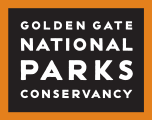Mindfulness for Park Professionals
Publication Date
Image

Story/Content
My office is just a short walk away from Fort Mason’s Great Meadow. This park has gentle, grassy hills and stunning views of the Golden Gate Bridge. Every morning as I head into work, I’m greeted with the ocean, air, bees, and native plants. Luckily for me, I don’t have to sneak away to see this beautiful space. Here at the Institute, we have an organizational culture that values outdoor time; I am encouraged to spend time in nature.
I take full advantage of this park perk. I enjoy walking meetings and impromptu botany lessons on the Great Meadow. But most of all, I cherish my daily mindfulness practice. It’s nothing fancy— lasting only 7 minutes— but it is the best perk my employer can ever give. Better than any sweet, salty or caffeinated snack, these 7 minutes help me refocus after a hectic morning, or calm my nerves before a big meeting. I’m more creative in my problem-solving, more patient with obstacles, and more present with my co-workers. In short, it makes me a better employee.
I don’t want to be one of those self-righteous hippies, pushing the latest crunchy granola health practices on my co-workers, but I can’t help it when it comes to mindfulness. I think mindfulness is a useful tool for all park professionals. I know from experience, but science supports it too. Mindfulness can bolster mental and physical health. It can even change our neural pathways –changing the physical structure of the brain. Lastly, and perhaps most importantly, it builds up inner resilience. Mindfulness and meditation practices are linked to increasing compassion, mental flexibility, and attention.
Inner resilience is a crucial asset for park professionals right now. Urban parks are entering frontiers that require us to tap into our best attributes. Climate change, health disparities, and homelessness are all daunting challenges that parks must bravely face. These challenges deserve our creativity, patience, focus, and best interpersonal skills. In order to be better stewards of our parks and our communities, we need to invest in our own inner stewardship.
So, at the risk of sounding preachy, take advantage of your park perks. Prepare for a challenging, and exciting future. I’ll meet you at the Great Meadow.


